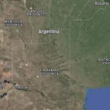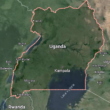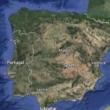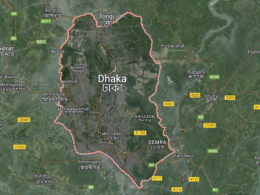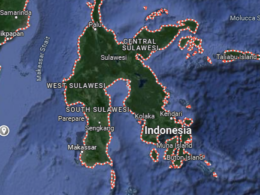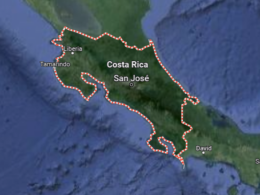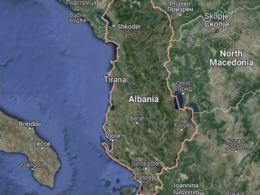Sure! Here are 100 lesser-known facts about Lithuania:
Lithuania is one of the oldest countries in Europe, first formed in the 13th century.
Vilnius, the capital of Lithuania, is known for its Baroque architecture and has one of the largest old towns in Central and Eastern Europe.
Lithuania was the last country in Europe to adopt Christianity in 1387.
The Lithuanian language is one of the oldest languages in the world and is closely related to Sanskrit.
Lithuania was the first Soviet republic to declare independence from the USSR on March 11, 1990.
The Hill of Crosses, near the city of Šiauliai, is a pilgrimage site with over 100,000 crosses.
Lithuania is home to the geographical center of Europe, located near the village of Purnuškės.
Basketball is the most popular sport in Lithuania, and the country has produced many NBA players.
The Lithuanian flag consists of three horizontal stripes: yellow, green, and red, symbolizing the sun, forests, and blood, respectively.
Lithuania has a population of about 2.8 million people.
The country has four national parks and numerous nature reserves.
Lithuania has a unique pagan festival called Joninės, celebrating the summer solstice with bonfires and folk songs.
Vilnius University, founded in 1579, is one of the oldest universities in Eastern Europe.
Lithuania is known for its amber, often referred to as “Lithuanian gold,” found along its Baltic Sea coast.
The Lithuanian city of Kaunas served as the temporary capital between the World Wars.
The Trakai Island Castle, located on an island in Lake Galvė, is a popular tourist destination and historical museum.
Lithuania has a significant diaspora, with large communities in the United States, United Kingdom, and other countries.
The Curonian Spit, a UNESCO World Heritage Site, is a 98 km long sand dune peninsula shared with Russia’s Kaliningrad region.
Lithuania has a tradition of singing and folk music, with a rich heritage of polyphonic songs known as “sutartinės.”
The Lithuanian Grand Duchy was one of the largest and most powerful states in Europe during the 14th and 15th centuries.
Lithuania has a unique folk dance called “šokiai,” often performed at festivals and celebrations.
The Lithuanian language has many dialects, with the Aukštaitian and Samogitian being the most distinct.
The Vilnius TV Tower is the tallest structure in Lithuania, standing at 326.5 meters (1,071 feet).
The country has a rich tradition of folk art, including woodcarving, weaving, and pottery.
Lithuania has a parliamentary republic system of government with a President as the head of state.
The country celebrates its independence day on February 16th, marking the Act of Independence in 1918.
The Baltic Way was a peaceful political demonstration in 1989 where about 2 million people formed a human chain across the three Baltic states.
The Lithuanian currency was the litas before adopting the euro in 2015.
The country has a strong beer culture, with many local breweries producing a variety of traditional and craft beers.
Lithuania has one of the highest internet speeds and internet penetration rates in the world.
The country has a significant Jewish heritage, with Vilnius once being known as the “Jerusalem of the North.”
Lithuania has many castles and manors, including the medieval Kaunas Castle and the Renaissance-style Pažaislis Monastery.
The country has a strong tradition of educational excellence, with high literacy rates and a well-developed school system.
Lithuania is home to the only statue of Frank Zappa in the world, located in Vilnius.
The Aukštaitija National Park is the oldest national park in Lithuania, established in 1974.
Lithuania has a significant number of lakes, with over 3,000 scattered throughout the country.
The country has a rich literary tradition, with many famous poets and writers, including Maironis and Kristijonas Donelaitis.
Lithuania’s climate is maritime-continental, with mild summers and cold winters.
The country has a significant Catholic population, with over 75% of Lithuanians identifying as Roman Catholic.
The Lithuanian seaside resort town of Palanga is famous for its sandy beaches and vibrant nightlife.
The National Museum of Lithuania, located in Vilnius, is the oldest and largest museum in the country.
Lithuania has a unique form of sauna called “pirtis,” often accompanied by traditional rituals and ceremonies.
The country has a significant number of UNESCO World Heritage Sites, including the Kernavė Archaeological Site and the Curonian Spit.
Lithuania has a strong tradition of choral singing, with many choirs and music festivals held throughout the year.
The country has a unique blend of Gothic, Renaissance, Baroque, and modern architecture.
Lithuania is one of the world’s leading producers of linen, with a long tradition of flax cultivation and textile production.
The Lithuanian folk costume is an important symbol of national identity, often worn at festivals and celebrations.
The country has a rich culinary tradition, with dishes like cepelinai (potato dumplings), kugelis (potato pudding), and šaltibarščiai (cold beet soup).
The Lithuanian Parliament is called the Seimas.
The country has a well-developed system of cycling routes and paths, making it popular for bicycle tourism.
Lithuania’s second-largest city, Kaunas, is known for its interwar architecture and vibrant cultural scene.
The country has a tradition of celebrating name days, which are often more significant than birthdays.
The Lithuanian Song Festival, held every four years, is one of the largest amateur choral events in the world.
The Lithuanian flag was adopted in its current form in 1988.
Lithuania has a high level of urbanization, with about two-thirds of the population living in cities.
The country’s postal code system is highly efficient, with each address having a unique code.
Lithuania is known for its natural beauty, with many forests, rivers, and lakes.
The country has a significant tradition of handcrafts, including knitting, embroidery, and basket weaving.
The Lithuanian calendar includes many public holidays and traditional celebrations, such as Velykos (Easter) and Kalėdos (Christmas).
The country has a rich history of resistance and resilience, particularly during the Soviet occupation.
Lithuania has a significant tradition of folk tales and legends, often featuring mythical creatures and heroes.
The country has a well-developed network of public libraries and cultural institutions.
Lithuania has one of the highest rates of higher education attainment in the European Union.
The country has a significant tradition of theater and performing arts, with many theaters and cultural centers.
Lithuania is known for its vibrant contemporary art scene, with many galleries and exhibitions.
The country has a strong tradition of environmental conservation and sustainability.
Lithuania has a significant number of protected natural areas, including national parks and nature reserves.
The country has a rich tradition of folk music, with many traditional instruments like the kanklės (a type of zither).
Lithuania has a significant tradition of astronomy, with the Molėtai Astronomical Observatory being a major research center.
The country has a strong tradition of literary translation, with many works of world literature available in Lithuanian.
Lithuania has a significant tradition of public festivals and fairs, often featuring traditional music, dance, and crafts.
The country has a well-developed system of public transportation, including buses, trains, and ferries.
Lithuania has a significant tradition of agricultural production, particularly in dairy and grain farming.
The country has a rich tradition of botanical gardens and arboreta, with many rare and exotic plants.
Lithuania has a significant tradition of scientific research and innovation, with many universities and research institutes.
The country has a rich tradition of maritime history and culture, with many museums and exhibitions.
Lithuania has a significant tradition of civic engagement and volunteerism, with many non-governmental organizations.
The country has a rich tradition of public art and monuments, often commemorating historical events and figures.
Lithuania has a significant tradition of film and cinema, with many notable directors and film festivals.
The country has a well-developed system of public health care, with many hospitals and clinics.
Lithuania has a significant tradition of military history and defense, with many museums and memorials.
The country has a rich tradition of religious and spiritual life, with many churches and monasteries.
Lithuania has a significant tradition of social welfare and support, with many programs and services for vulnerable populations.
The country has a well-developed system of public administration and governance.
Lithuania has a significant tradition of culinary innovation, with many modern chefs and restaurants.
The country has a rich tradition of folklore and mythology, often featuring magical creatures and gods.
Lithuania has a significant tradition of public education and literacy, with many schools and libraries.
The country has a well-developed system of public safety and law enforcement.
Lithuania has a significant tradition of political activism and reform, with many notable leaders and movements.
The country has a rich tradition of public architecture and urban planning.
Lithuania has a significant tradition of public communication and media, with many newspapers and broadcasters.
The country has a well-developed system of public finance and budgeting.
Lithuania has a significant tradition of public health and wellness, with many programs and initiatives.
The country has a rich tradition of public service and civic duty.
Lithuania has a significant tradition of public history and heritage, with many museums and archives.
The country has a well-developed system of public utilities and infrastructure.
Lithuania has a significant tradition of public sports and recreation, with many facilities and programs.
The country has a rich tradition of public diplomacy and international relations.
Lithuania has a significant tradition of public ethics and integrity, with many standards and codes.
The country has a well-developed system of public information and transparency.
**Please note that this post may contain affiliate links. When booking through one of our links, we earn a small kickback at no extra cost to you and it’s a big help to keep the site up and running.


